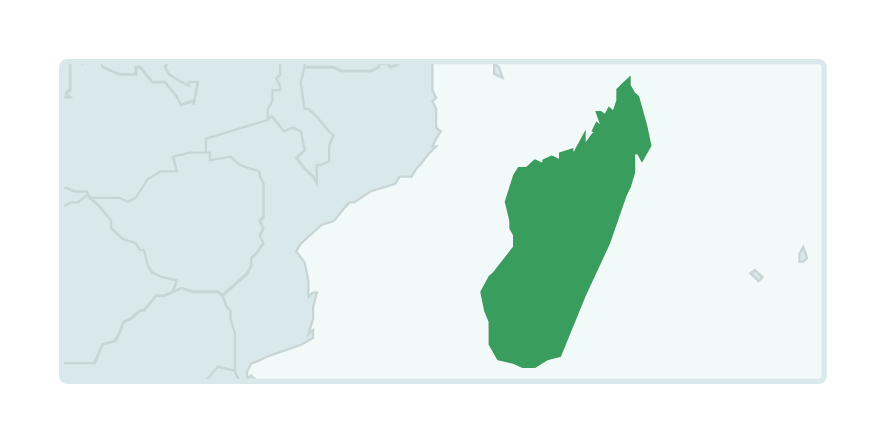Since 2015, GRET has been supporting the inhabitants of Sainte-Marie island, in Madagascar, in their efforts to protect biodiversity. Thanks to the commons-based approach taken by the NGO, in 2018 the local population voted in favour of the creation of a protected land and marine area. Today, GRET is supporting local initiatives aimed at achieving this through Phase 2 of the Tsara Kobaby project (2022-2025).
Madagascar is one of the richest, most fragile biodiversity areas (also referred to as hot spots) in the world. Over the last twenty years, strong political commitments for nature conservation have been made by the Malagasy government. The latter notably include the implementation of a vast network of protected areas, which ensure viability of ecosystem services provided to the population.
Sainte-Marie island is home to 4,200 hectares of rainforest, around sixty endangered species and remarkable marine ecosystems. As a breeding ground for humpback whales, the island was classified as a priority site to be protected by the Malagasy State in 2008. Yet, its exceptional biodiversity is still endangered by overfishing, deforestation, urbanisation of the coastline and climate change.
This diversity of living forms is essential for the population’s way of life. Degradation of forests, mangroves and coral reefs is generating significant risks. Food security is also in jeopardy. As is the territory’s social cohesion and the island’s protection against extreme climate events.
The dynamic began in 2015, when GRET encouraged inhabitants to become organised in order to preserve the island’s coastal areas. Two years later, the Platform of consultation and support for the sustainable development of Sainte-Marie island (PCADDISM) was created. This local association’s mission is to conserve common goods and facilitate their appropriation by the island’s population. In 2018, the inhabitants of Sainte-Marie decided to start procedures to make the island a protected area, in order to ensure its sustainable management over the long term. The administrative process began in 2020 with the Malagasy Ministry of the Environment and Sustainable Development. However, biodiversity erosion, and the social and ecological emergency it generates require immediate actions.
By supporting a community-based dynamic, this project is encouraging citizen re-appropriation of control over natural resources present in the territory. To do this, PCADDISM and GRET are jointly supporting initiatives by the population.
Today, a sense of appropriation of governance has emerged among the island’s local communities, fishermen and civil society.
In order to respond to these multiple challenges, a commons-based approach was taken. For GRET, the commons correspond to a dynamic: the way in which a group of individuals becomes organised to conserve the common goods on which they depend. In this case, the island’s biodiversity. Since 2015, GRET has been supporting citizen mobilisation aimed at conserving this biodiversity and ensuring fair access to natural resources, while valorising traditional ecological knowledge. This approach includes all the people directly affected by the use of these resources. This enables everyone to fully participate in the definition of rules for use of natural resources and control over their implementation.
This project is part of the “Commons and shared governance programme” supported by AFD.
This project is also supported by Maisons du Monde Foundation.
